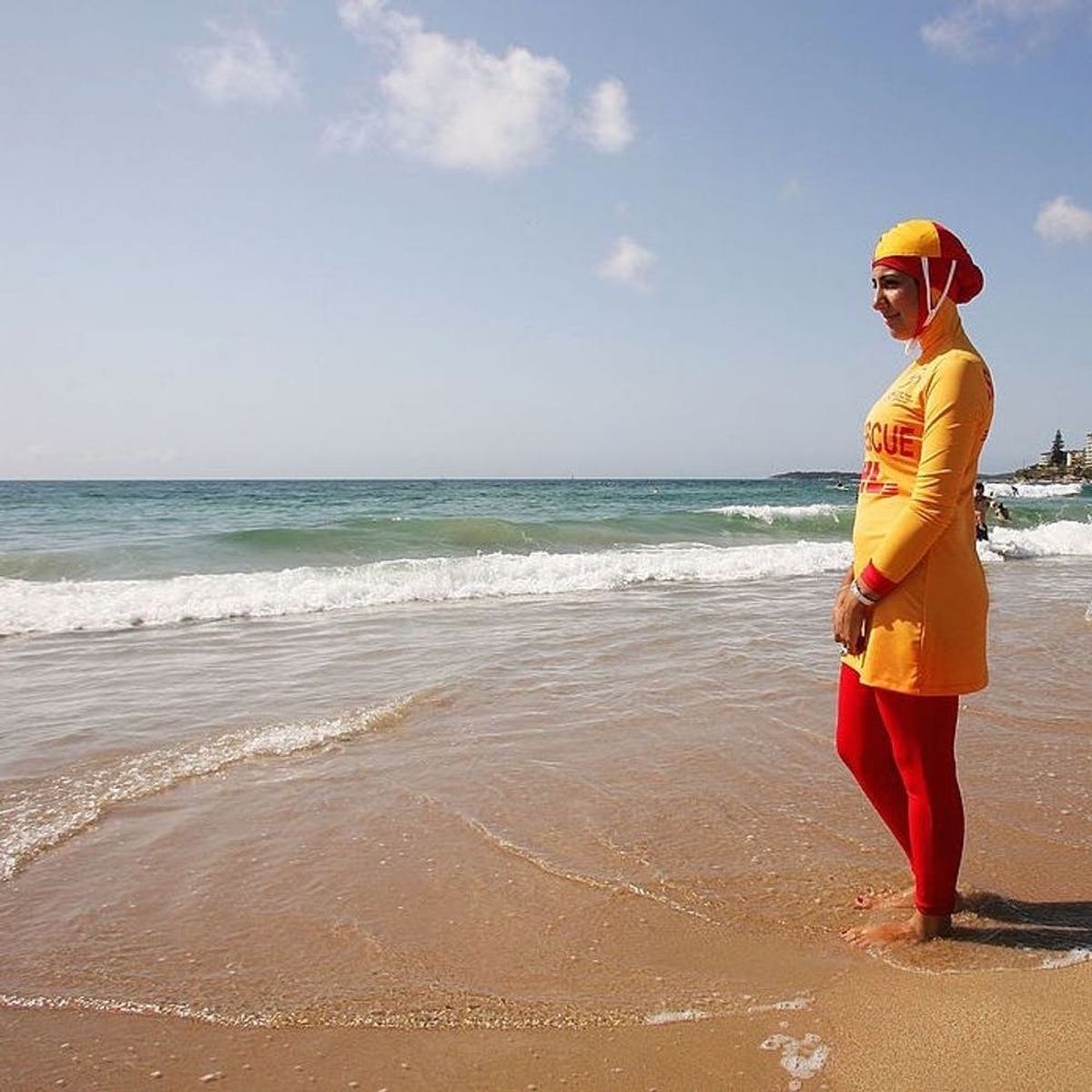You won’t look at these images the same way again.
Why You Might Think Twice Before Sharing That Burkini Ban Picture

You might know by now about the woman in Nice who was made to take off her burkini on the beach this Tuesday — by armed policemen, no less. This incident happened after many French towns implemented controversial bans on the long-sleeved beach cover-ups that many Muslim women choose to wear. The burkini ban had already sparked quite a controversy, as well as a conversation, both online and off — and this incident created another flashpoint.
However, the reporting of it brought up another conversation online, one that you might not have thought about — and you may think twice before sharing some articles you’ve seen because of it. Many articles about what happened in Nice on Tuesday include pictures of the woman both before, during, and after what happened to her, and here are some of the reactions on Twitter to the inclusion of the photos:
If you're outraged by a Muslim woman being forced to take off her #burkini by police, maybe stop sharing photos of her being humiliated?
— haughty by nature (@sigh__oh) August 24, 2016
Stop sharing the pictures of the lady stripped of her burkini! Whether you're condemning it or not, you are adding to her humiliation.
— emzzz 🇯🇲🇺🇬 (@thelonelyldnr) August 24, 2016
Friends – kindly please stop sharing images of the woman at the French beach who had to undress infront of police, cameras, public #burkini
— Safiah (@SafiahC) August 24, 2016
Bystanders and news outlets took photos of the incident (how news outlets were on the scene at the beach this quickly, we’re not quite sure) and they were added to each and every article about what happened — articles written objectively, articles written to spread information and articles written to say that what happened to her were definitively not a good thing. While it’s good to share articles and spread information about current events, sharing these photos could be taken as a perpetuation of this woman’s humiliation, as these and other Twitter users pointed out.
So, what can we do better, if we want to be part of the conversation online but avoid sharing harmful images? We can tweet our own opinions about what happened, using trending hashtags. We can RT things from those the ban actually affects, like Muslim women who have opinions about burkinis and need their voices amplified in the current conversation. We can also actively search for articles that have similar information but different images, so that we can still spread the word without spreading the harmful content.
What do you think about the burkini ban? Tweet us @BritandCo!
(Photos via Matt King/Getty)

















